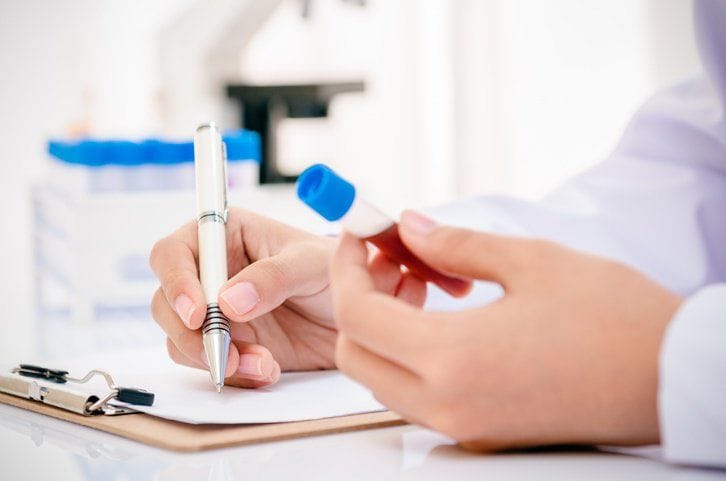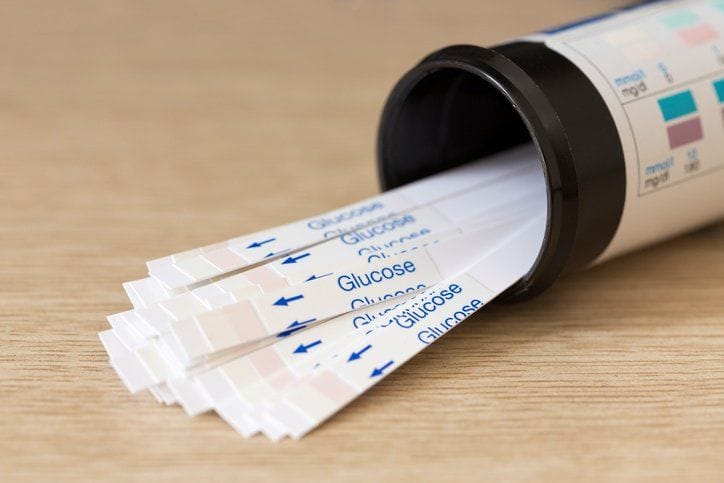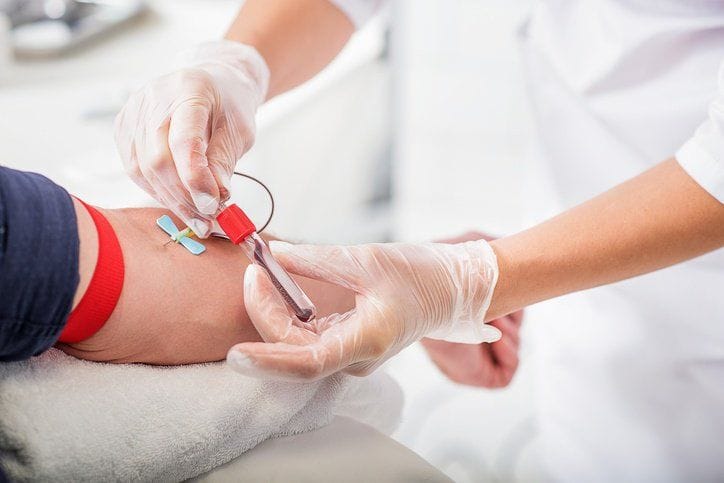
Proper preparation before a medical lab test is just as important as the test itself, since the way a patient prepares for a test can directly affect his or her results. In just 10 months, you’ll learn how to prepare patients for a range of different lab tests as you train to become a medical laboratory technician. You’ll also learn how to conduct tests that involve collecting blood, tissue, and other samples, how to efficiently log such samples, and much more.
Here’s what you need to know about prepping patients for their tests.
Patients are Required to Fast for Certain Lab Tests
Most laboratory tests require no preparation at all. Some, however, call for patients to fast for a designated timeframe before a sample is taken. These typically include tests for glucose or cholesterol, for instance, since levels of these substances vary during digestion.

Medical lab technicians advise patients to fast for glucose tests
A good lab technician program teaches students that there’s far more to fasting than simply not eating the night before a test. In fact, depending on the test, patients may need to fast for up to 12 hours—although most only call for 8 hours of fasting.
What is fasting, exactly? Fasting means not consuming any food or drink during a set period of time. That means patients can’t have a coffee, tea, or even a piece of chewing gum, since the results could be affected by any of these.
Some medications are allowed, unless the patient is advised otherwise by their doctor. However, if a patient is taking a blood-thinning medication, it’s important for you to closely observe them once their blood has been drawn, and make sure there isn’t still blood at the site. Once the bleeding has stopped, the patient may leave.
Advise Patients to Drink Plenty of Water to Prep for Blood Tests
During your medical laboratory technician course, you’ll learn that asking patients to drink lots of water before their blood is drawn will work wonders in keeping them safe. Water prevents a person’s blood pressure from dropping, so if your patient consumes plenty of it, they likely won’t faint or get dizzy after the test.
Likewise, it’s also important that patients avoid consuming caffeine, since it can counteract their water consumption by expelling water from the body.

Blood tests can make patients queasy, so it’s important to advise them to drink plenty of water
A Lab Technician’s Key to Effective Urine Testing
Urine tests can be a little tricky. First and foremost, the patient should always clean with soap and water before producing a sample. You’ll learn that urine samples are best collected first thing in the morning because that’s when the urine is most concentrated. It’s also important for patients to make sure a urine sample gets to the lab less than one hour after it’s been collected to avoid having multiplied bacteria affect the results.
If patients are taking antibiotics, you’ll want to advise them to collect their urine before taking this medication, as antibiotics can cause false negative results. Finally, as a lab technician trainee, you’ll learn that some vitamins, such as vitamin C, can actually affect the results of a urine sample. That’s why it’s important that patients avoid consuming high doses of it.
Now that you know a little about preparing patients for medical testing, why not continue learning and earn your healthcare certification?
Visit Oxford College to find out if our medical lab technician program is right for you!






